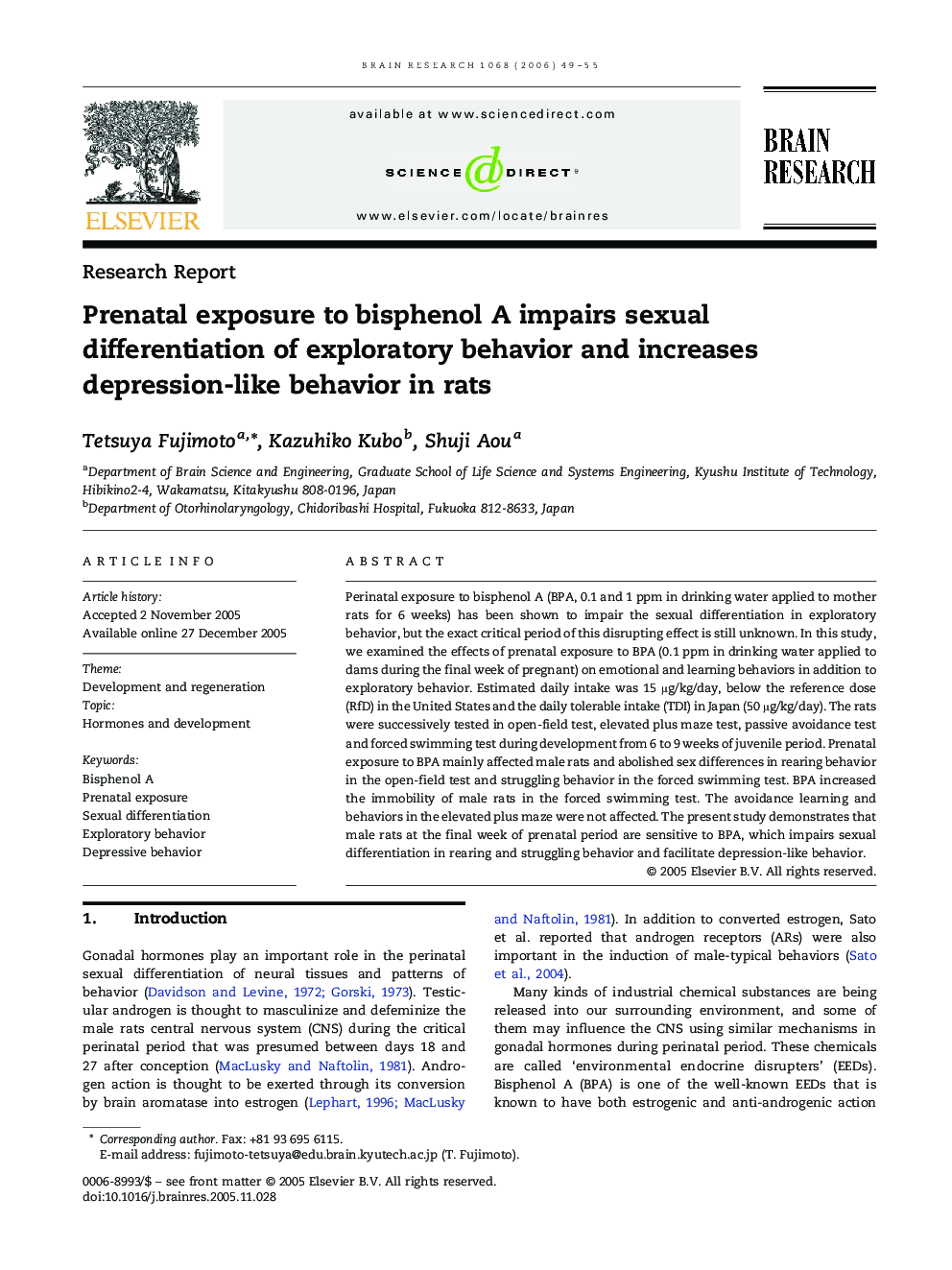| Article ID | Journal | Published Year | Pages | File Type |
|---|---|---|---|---|
| 4333523 | Brain Research | 2006 | 7 Pages |
Perinatal exposure to bisphenol A (BPA, 0.1 and 1 ppm in drinking water applied to mother rats for 6 weeks) has been shown to impair the sexual differentiation in exploratory behavior, but the exact critical period of this disrupting effect is still unknown. In this study, we examined the effects of prenatal exposure to BPA (0.1 ppm in drinking water applied to dams during the final week of pregnant) on emotional and learning behaviors in addition to exploratory behavior. Estimated daily intake was 15 μg/kg/day, below the reference dose (RfD) in the United States and the daily tolerable intake (TDI) in Japan (50 μg/kg/day). The rats were successively tested in open-field test, elevated plus maze test, passive avoidance test and forced swimming test during development from 6 to 9 weeks of juvenile period. Prenatal exposure to BPA mainly affected male rats and abolished sex differences in rearing behavior in the open-field test and struggling behavior in the forced swimming test. BPA increased the immobility of male rats in the forced swimming test. The avoidance learning and behaviors in the elevated plus maze were not affected. The present study demonstrates that male rats at the final week of prenatal period are sensitive to BPA, which impairs sexual differentiation in rearing and struggling behavior and facilitate depression-like behavior.
